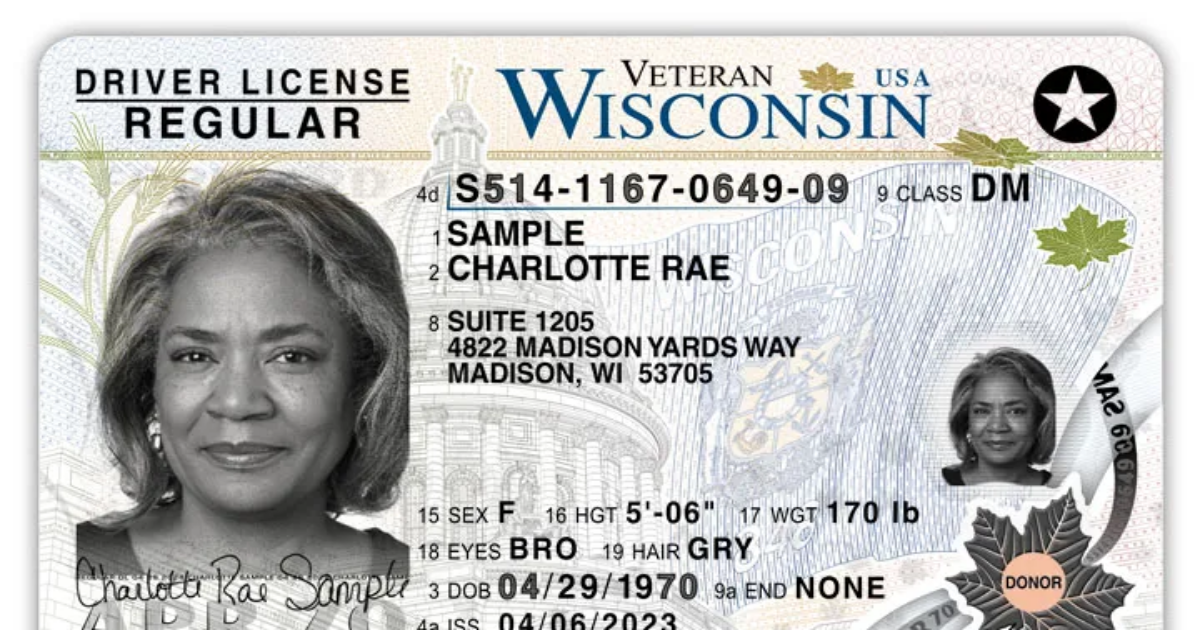
Starting May 7, everyone 18 and older will be required to have a REAL ID to fly domestically or enter federal buildings.
But what if you’ve recently moved? Even if you have a REAL ID from another state, you’ll still need to start over — resubmitting identity documents like your birth certificate, proof of residency, and any records of name changes — to get one in Wisconsin.
Rita McCauley said she learned that the hard way.
After moving to Wisconsin from Nevada — where McCauley said she already completed the REAL ID application process — she assumed she would automatically qualify for the same status on her new license. But during a recent trip to the DMV, McCauley said she learned she’d have to reapply from scratch.
“It’s a federal requirement. Why can’t we transfer the info that’s been verified and update the address?” McCauley asked Public Investigator.
As someone who’s been married a few times before, McCauley said it’s not easy for her to gather all of the documentation required to provide proof of her name changes.
Wisconsin DMV spokesperson Terry Walsh told Public Investigator that, due to federal law, there’s no way to work around reapplying for REAL ID credentials.
Advocates point out that these stringent policies — from applying for a REAL ID to registering to vote — are particularly challenging for women and transgender people, who often change their names or other information on their identity documents.
What is REAL ID?
According to the Department of Homeland Security, the requirement comes from the REAL ID Act passed in 2005 to establish minimum security standards for state-issued driver’s licenses.
More: You have until May 7 to get a Real ID in Wisconsin. Here’s what happens if you miss the deadline
Why can’t REAL ID credentials transfer between states?
Walsh, the DMV spokesperson, said the REAL ID Act outlines how states must collect and verify identity documents.
Even though McCauley was issued a REAL ID in Nevada, she still has to prove she meets the requirements — like proof of residency — in Wisconsin.
The American Association of Motor Vehicle Administrators is a nonprofit organization that supports and connects DMVs across the United States and Canada.
The association’s CEO Ian Grossman told Public Investigator that the organization’s state-to-state verification system helps DMV workers check whether someone has obtained REAL ID status in another state.
For example, in McCauley’s case, Grossman said the system would allow Wisconsin to notify Nevada that she shouldn’t be registered with REAL ID credentials there anymore.
However, due to federal law, the system stops short of allowing people to transfer their REAL ID status to other states. Grossman said the association is prepared to update its technology if federal policy ever changes.
Women and trans people face disproportionate barriers, National Women’s Law Center says
Alison Gill, director of nominations and democracy at the National Women’s Law Center, told Public Investigator that the “deeply personal” choice to change one’s name after marriage shouldn’t make life more difficult.
But from the REAL ID application to registering to vote, Gill said women who have changed their last name are facing far too many unnecessary challenges that lawmakers should take notice of.
“This isn’t an isolated issue — it’s part of a broader pattern of systemic inequality,” said Gill.
The Women’s Law Center is closely following the SAVE Act, she added, a bill that, if passed, would require anyone registering to vote to present documentation of not only their identity but also their citizenship status.
The SAVE Act requires that, when registering to vote, the name on your ID or passport matches the name on your birth certificate or naturalization card. However, it doesn’t specify what the 69 million American women who took their partner’s last name after marriage should do to comply with this rule.
“Trans people, who also frequently change their name and information on their identity documents, are also impacted by these measures,” Gill said.
Women already grapple with wage gaps and health care disparities, Gill said.
“The last thing they need to worry about is whether a name change will jeopardize their right to vote or access legal identification,” she said.
Quinn Clark is a Public Investigator reporter for the Milwaukee Journal Sentinel. She can be emailed at [email protected].
